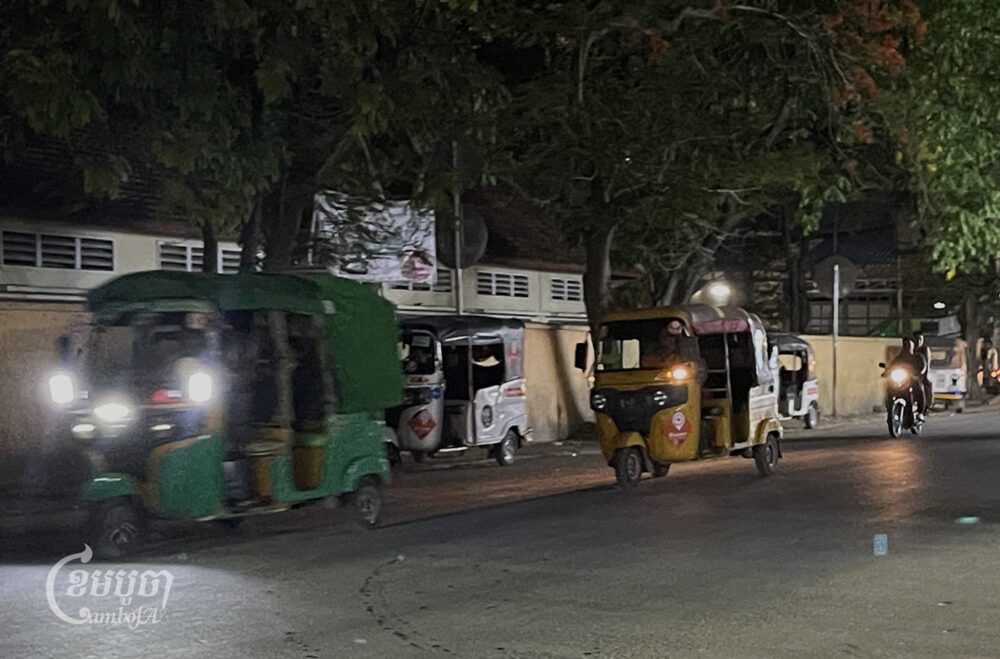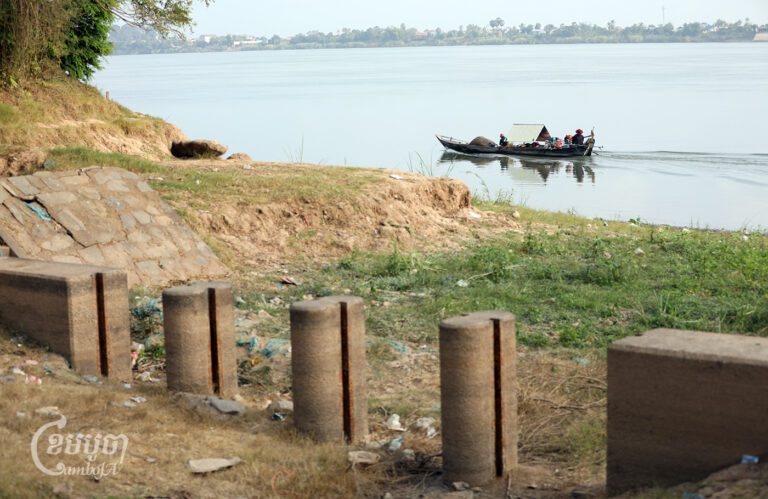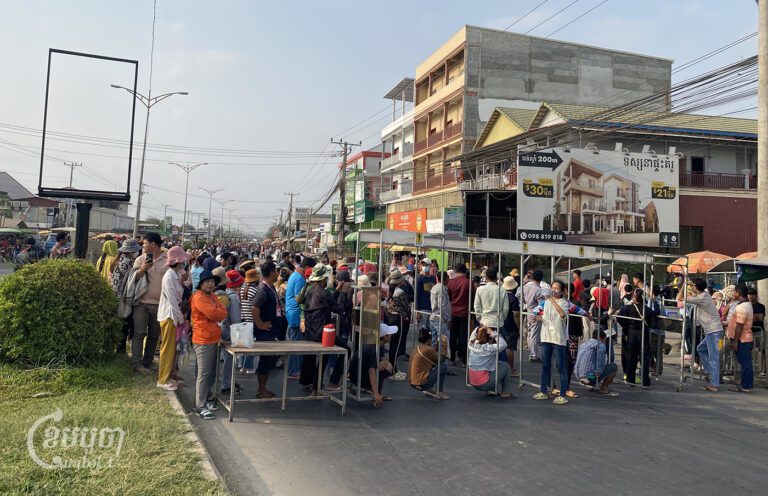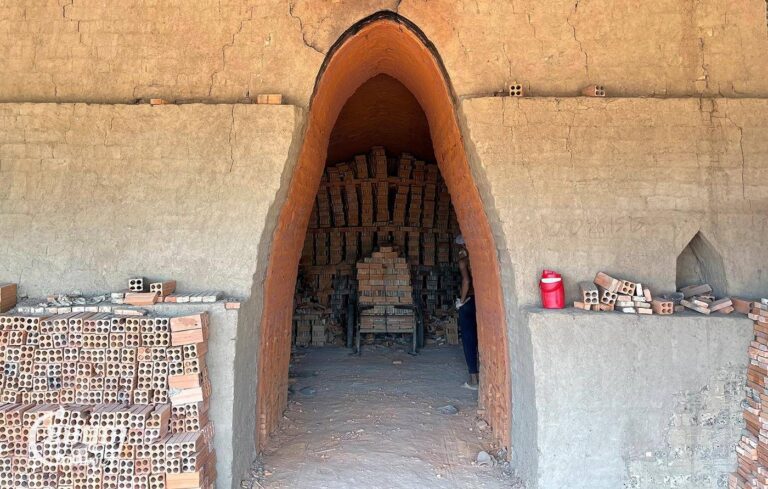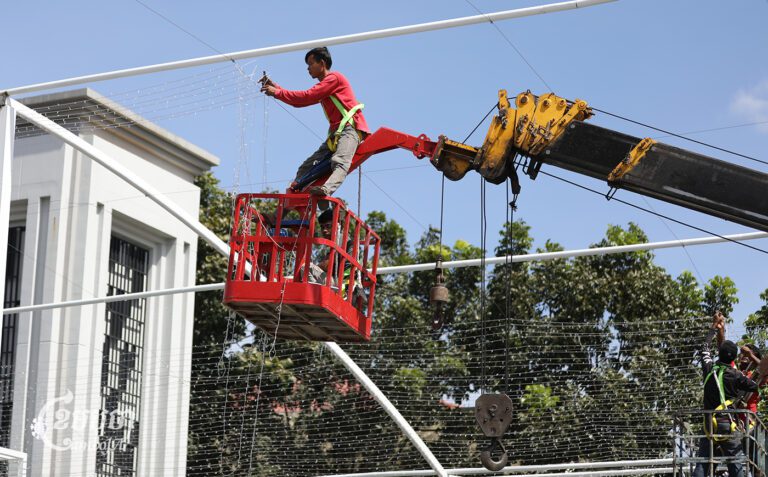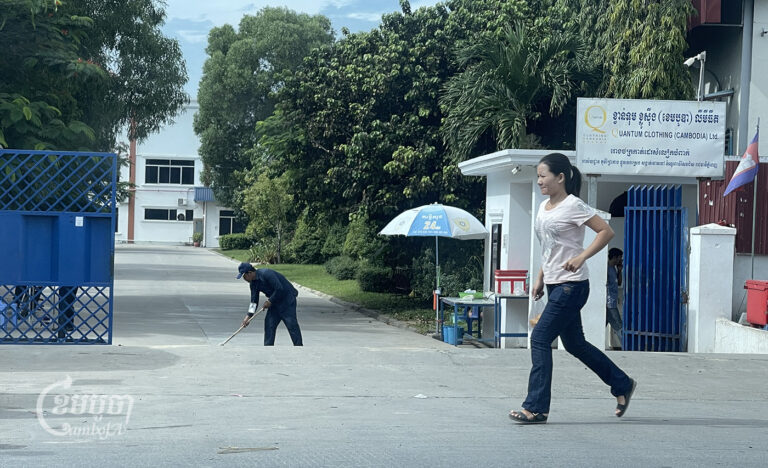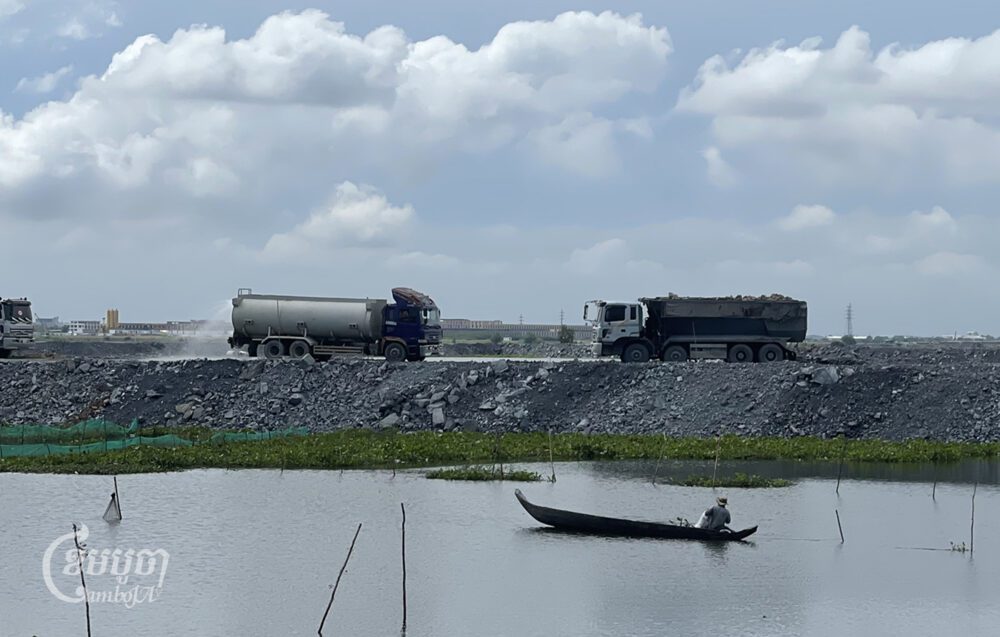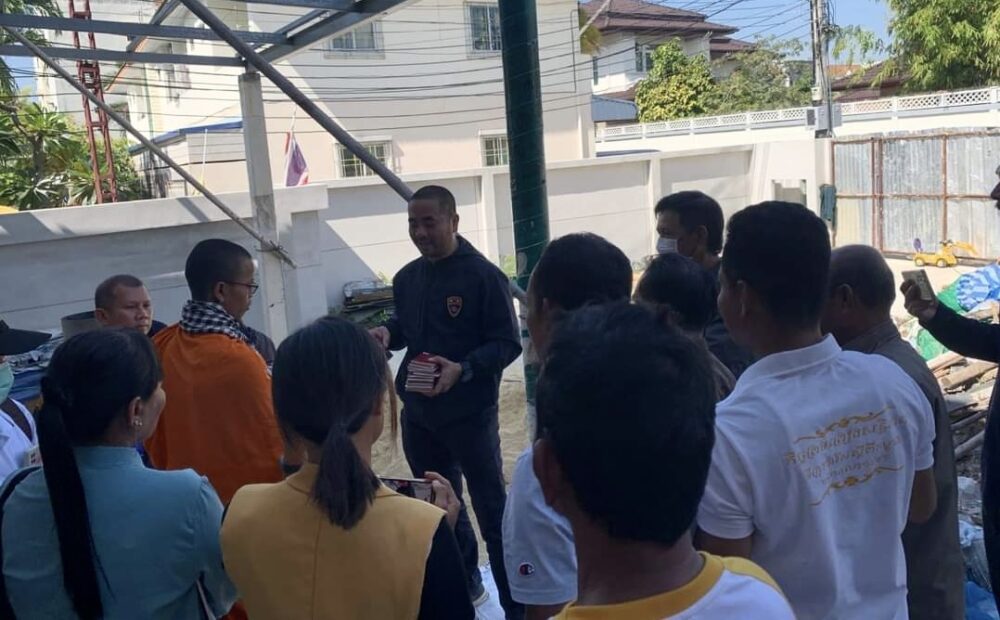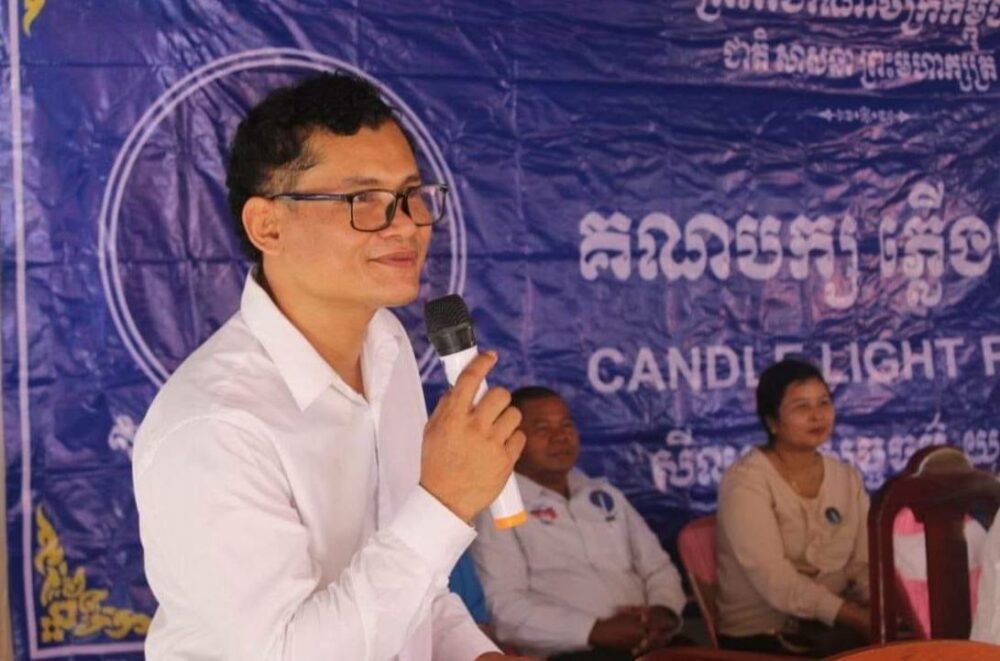Chorn Chivoan from Preah Sihanouk province’s Sangkat 1 Village in Sihanoukville told CamboJA who worked at the Angkor Brewery since 2008 met with an accident in 2021. The work accident caused him to lose his right arm, and paralyzed his left arm.
He adds that this has made it difficult to find a job and has caused a lot of despair in life, and also it has negatively impacted his family’s well-being.
He suggested two workers handle a dangerous job to reduce the risk of an accident or ensure safety. “If someone had shut down the machine when my accident happened, I would not have lost an arm, ” the 37-year-old told CamboJA News.
He said their family life had been doing well before the accident. After the incident, they faced numerous difficulties and had to sell off their farmland to pay their bank debts.
The father of two children, the older one in third grade and the other just one year old, said he is responsible for their education and needs to buy milk for the younger child.

Not safe at night
As a woman, Sovann Vary, a 42-year-old tuk tuk driver, does not feel safe on the road, worse at night, which makes her job difficult. In addition, the authorities are not there to help them when an accident happens, even more so at night.
Her health is affected as she works during the day and late into the night to make a living, said Vary, a single mom of an 11-year-old child. Her economic situation has caused her emotional distress.
“Society thinks that work is not divided into women’s work or men’s work. What is important is that people want to work. Women can do men’s work, it is normal, so I do not think that when they take up a job as a tuk tuk driver, that they are doing a man’s job,” Vary said.
Having experienced problems, she joined Independent Democracy of Informal Economy Association (IDEA), a civil society organization which helps to find solutions for informal workers.
A proposal by IDEA to relevant ministries included a demand for the National Social Security Fund (NSSF) card to address the workers’ health issues.
“I would like the government to help informal workers, such as tricycle and taxi drivers, particularly at night when traffic issues make the area unsafe. But, the authorities don’t intervene in traffic accidents, there’s no immediate solution,” Vary said.
Regarding the price of tricycle gas, she mentioned that it is too expensive. “I don’t know. This is a government issue. It’s difficult to talk about tax issues, so as citizens, we just pay taxes to the state. Therefore, we should be given more protection by the government.”

Many workplace hazards
A report, published by the Labor and Vocational Training Ministry’s NSSF on the annual achievements and action plan 2022, stated that occupational risk assessment of accidents had risen 29.28% compared to 2021. This involved 14,742 workers including 7,923 women. Of that, 7,342 people had accidents in their workplace and 7,400 people while traveling to work.
Van Thanna, union secretary at Yida Factory in Kandal, said a fire broke out at a chemical site on January 18, 2024, killing one person and injuring 22 others. The workers were taken to the hospital, but there was a delay in treating them although there was a partnership with NSSF.
“We want to request hospitals or organizations working in cooperation with NSSF to pay more attention to workers with NSSF cards when they come in for treatment,” Thanna said.

Cambodian Alliance of Trade Union president Yang Sophorn said factory workers and in other job sectors continue to face occupational risks.
She said the state does not have adequate safeguards for workers, adding that when accidents happen, the government only issues measures to control the situation. If the government views that occupational hazards are important matters, there must be laws to hold companies responsible.
There are many hazards at the workplace these days, including traffic accidents, health problems and exposure to chemicals.
Long working hours, weather affect health
“A workplace that respects workers’ rights is a safe place for employees. Therefore, the Occupational Safety and Health (OSH) Commission must be strengthened. The state must establish safety laws in the workplace because there are none to monitor occupational health and safety. There are only rules,” she said.
Sophorn said to make workplaces safe, stakeholders must have a clear understanding of how the law will be enforced. There is a need to strengthen inspections and establish an OSH Commission on workplace safety.
A law must also be introduced to ensure health inspection and workers’ safety standards, sanitation and minimize the usage of chemicals at workplaces.
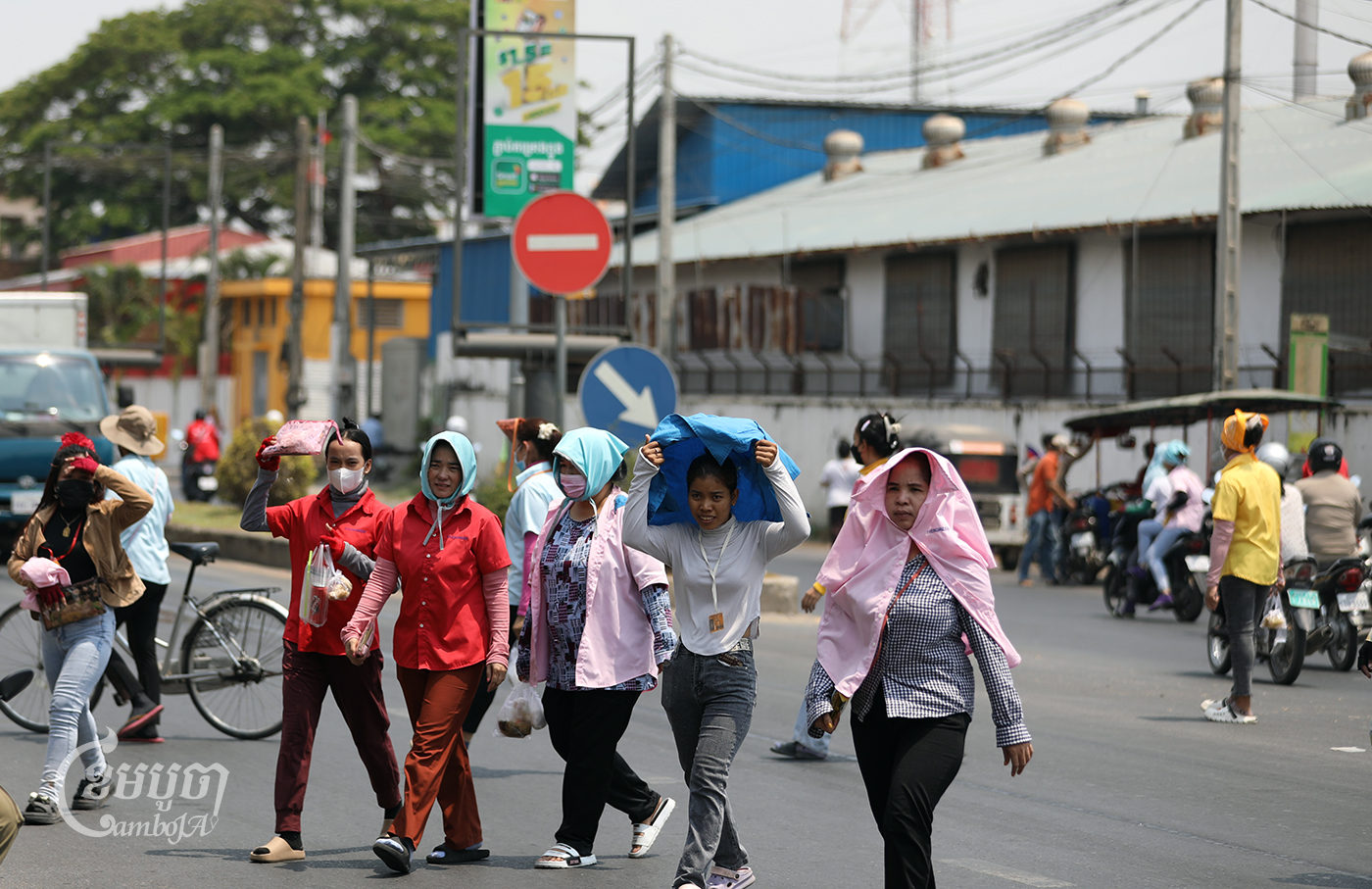
Vorn Pao, president of the IDEA, said informal workers experience a lot of hardship. Some 75% of informal economy workers have bank debts, which have led to the confiscation of property, such as tricycles, although it is used for work.
Data collected by the World Bank in May 2024 from officially recognized sources showed that Cambodia’s total labor force was 9.17 million in 2023.
According to Pao, there are some who have no money to pay for housing, electricity and food, and are forced to live on the streets. Some face difficulties paying for their children’s education. The health of informal workers is also affected due to long working hours and working in the hot climate.
Informal workers need security
A report by NGO Sahmakum Teang Tnaut Organization (STT) titled Eviction, Compensation, and Debt Report 2023 showed that people who are forcibly evicted from their homes without proper resettlement are burdened with debt, have low access to food. Their children also experience disruptive education and are subject to child labor.
Pao said to support informal workers during hardships, the government should improve social security measures by providing timely solutions to their issues and better guarantees, especially for traffic-related problems.
Additionally, the government should focus on rehabilitating the country to prevent economic hardships for informal workers.
“To protect informal work, the government must reconsider delaying microfinance institutions. The state must have a package to rehabilitate the people, a package for low-interest borrowers,” Pao said.
The state must have a place for decent business for informal workers to do business properly.
The government is working on strengthening the economy to help informal workers to earn income, but they must also provide additional security during the day and night, and lower gas prices, he said.
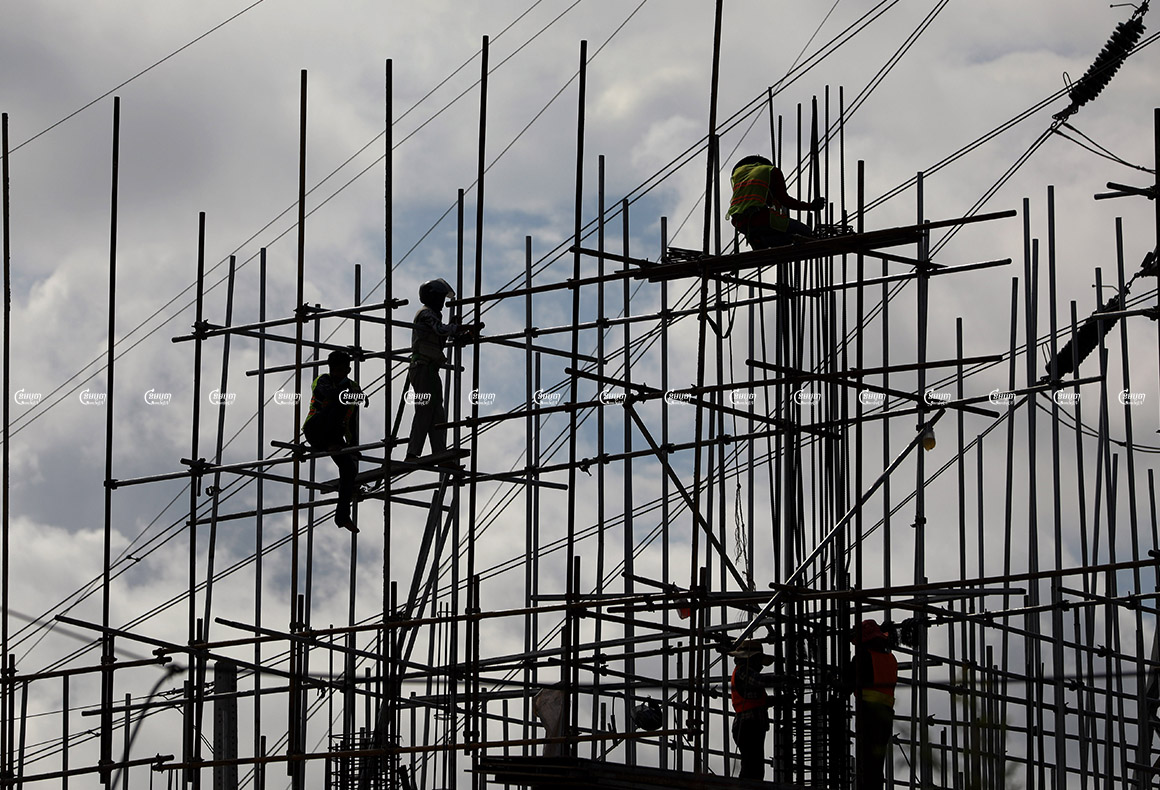
The situation is same everywhere
Katta Orn, spokesperson for the Ministry of Labour and Vocational Training, said the ministry has issued guidelines for employers and workers to follow to prevent risks relating to heat, fire and general safety.
These guidelines were disseminated through media channels, including social media. Officials were also instructed to inspect factories and enterprises to ensure the guidelines were followed.
“Ministries are implementing technical and skills training programs for young people to have one skill in life to have a job and a decent income. Meanwhile, the National Employment Agency facilitates job search for young people every day,” he said.
Government spokesperson Pen Bona told CamboJA News that road safety is “not a major concern everywhere”, only some places.
He also replied that fuel prices are determined by the global market, however, the market price is “still reasonable”.
Bona said good working conditions are prevalent and labor disputes are “rare” and “generally minor” compared to the previous decade. He agreed that it was “scorching hot” this season but the situation is the same across the region.
“Regarding informal economy, one of the six points in the first phase of the Pentagonal Strategy is about developing the informal economy, paying close attention to the issues and how to support external work. The system enables the workers to grow, expand their business, and have a better income. This is the government’s policy,” Bona added.


